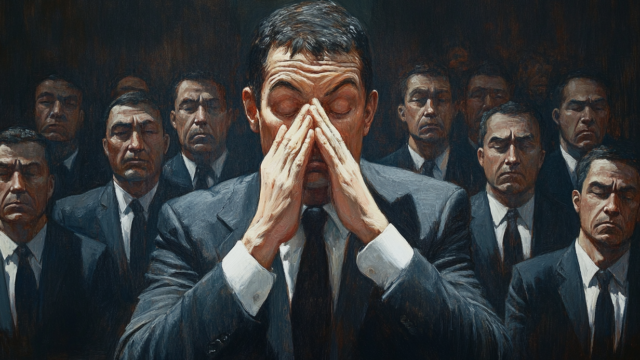
「エイプリルフールの魔法」
4月1日、世界中で人々が冗談やいたずらを仕掛ける日がやってきた。「エイプリルフール」として知られるこの伝統は、各国でさまざまな形で楽しまれている▼フランスでは「ポワソン・ダブリル(Poisson d’Avril)」、直訳すると「4月の魚」と呼ばれる独特な習慣がある。フランスの子どもたちは紙で作った魚を大人の背中にこっそり貼り付け、相手が気づいたときに「ポワソン・ダブリル!」と叫んで逃げ出す。この伝統は何世代にもわたって続いており、子どもだけでなく大人も参加することがある▼エイプリルフールの起源については諸説あるが、16世紀のフランスに由来するという説が有力だ。かつてヨーロッパの多くの地域では、新年を3月25日頃から4月1日にかけて祝っていた。しかし1564年、フランス王シャルル9世が新年の日を1月1日に変更した。古い暦に固執していた人々は「エイプリルフール(4月の愚か者)」と呼ばれ、からかいの対象となったという▼英語圏では、いたずらを仕掛けた後に「April Fool!(エイプリルフール!)」と叫ぶ。また「Gotcha!(やった!)」という表現や、完全に騙された人に対して「hook, line, and sinker(完全に騙された)」というフレーズも使われる▼イギリスやカナダなど英語圏の国々では、正午までしかいたずらができないというルールがある。正午以降にいたずらを仕掛けようとする人は、逆に「エイプリルフール」と呼ばれてしまう▼各国のエイプリルフールの歴史には興味深いエピソードが満載だ。1986年、フランスの新聞はエッフェル塔が解体されてディズニーランドに移設されると報じた。1965年には、デンマークの新聞が「夜間の交通安全のため、すべての犬を白く塗る法律が可決された」と報じ、多くの市民を騙した▼ところで、笑いには免疫力を高める効果があるといわれている。特にエイプリルフールの日に笑うことで、その効果が倍増するという研究結果も…エイプリルフール!▼文化を超えて人々を結びつけるエイプリルフールの伝統は、私たちに笑いと創造性をもたらしてくれる。時には真面目な日常から離れ、少しのいたずら心を持つことも、人生の調味料として大切なのかもしれない。

【英語訳】The Magic of April Fools’ Day
April 1st marks the day when people worldwide engage in jokes and pranks. This tradition, known as “April Fools’ Day,” is enjoyed in various forms across different countries.
In France, there’s a unique custom called “Poisson d’Avril” (April Fish). French children secretly attach paper fish to adults’ backs, then shout “Poisson d’Avril!” and run away when the person notices. This tradition has continued for generations, with both children and adults participating.
While there are several theories about the origins of April Fools’ Day, the most credible links it to 16th century France. Many European regions once celebrated the New Year between March 25 and April 1. However, in 1564, French King Charles IX changed New Year’s Day to January 1. Those who clung to the old calendar were called “April Fools” and became targets of ridicule.
In English-speaking countries, pranksters shout “April Fool!” after pulling a prank. Expressions like “Gotcha!” and phrases such as “hook, line, and sinker” (for someone completely fooled) are also common. Countries like Britain and Canada have a rule that pranks can only be played until noon. Anyone attempting pranks after noon becomes the “April Fool” themselves.
The history of April Fools’ Day across countries is filled with fascinating episodes. In 1986, a French newspaper reported that the Eiffel Tower would be dismantled and relocated to Disneyland. In 1965, a Danish newspaper claimed that a law requiring all dogs to be painted white for nighttime traffic safety had been passed, fooling many citizens.
By the way, laughter is said to boost immunity. There’s even research suggesting this effect doubles on April Fools’ Day… April Fool!
The tradition of April Fools’ Day connects people across cultures, bringing laughter and creativity. Perhaps taking a break from our serious daily routines and embracing a bit of mischief serves as an important spice of life.







